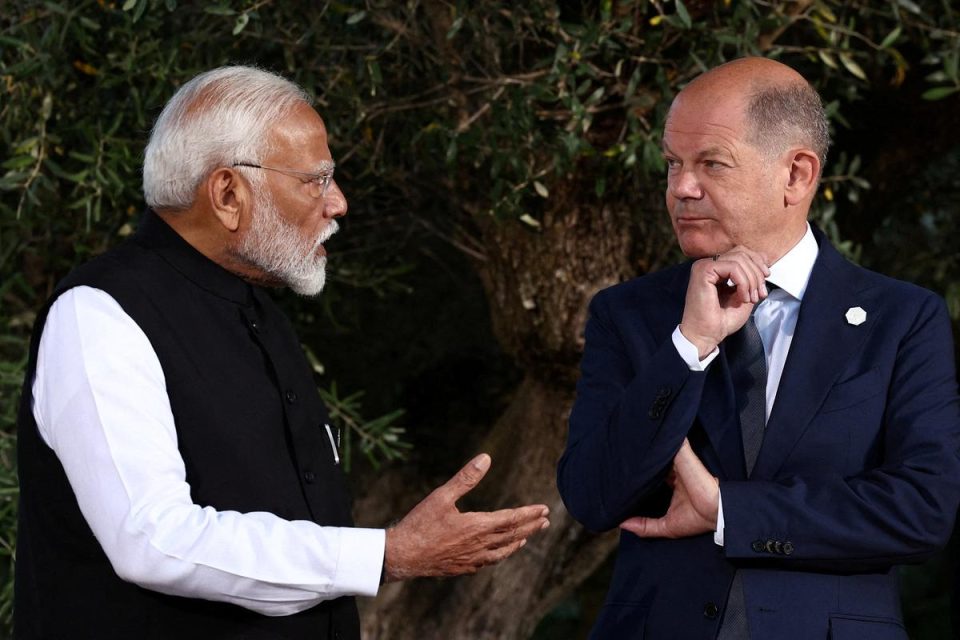German Chancellor Olaf Scholz is visiting India for the 7th India-Germany Inter-Governmental Consultations (IGC), a biennial meeting held since 2011. His agenda also includes delivering the keynote address at the Asia Pacific Conference alongside Prime Minister Modi.
This visit follows the German government’s recent release of a white paper, “Focus on India,” underscoring a deepening partnership between the two countries in areas such as business, defence, and energy. Relations between India and Germany have steadily advanced, and this visit provides a timely opportunity for India to strengthen its position as a vital partner for Germany.
For India, Germany serves as a bridge to greater European integration, particularly as India continues its efforts to secure a comprehensive free trade agreement with the EU. Meanwhile, Germany sees India as a key partner to diversify its international alliances amid a strategic shift to reduce economic reliance on China. With a solid foundation of cooperation across multiple sectors, the stage is set for taking bilateral relations to new heights. Let’s explore the most significant areas of this collaboration.
Germany is India’s biggest trade partner in the European region, with bilateral trade crossing $26 billion in 2023. Moreover, companies from Germany have been investing in India’s industrial growth, with major players such as Volkswagen, Siemens, and Bosch contributing to sectors such as automotive manufacturing, infrastructure, and automation.
The German business industry has a positive outlook and almost 60% of companies are looking to invest this year.
The German Embassy’s Make in India Mittelstand (MIIM) initiative actively supports German manufacturing firms with high growth potential, smoothing their market entry into India.
Scholz’s current visit is set to strengthen this collaboration, especially in high-growth sectors like electric mobility, where both nations are committed to advancing a sustainable future. Germany’s expertise in battery technology and charging infrastructure aligns well with India’s rapid EV ecosystem growth, with German investments already contributing to India’s ambitious green mobility goals.
The Indo-German partnership also focuses on green hydrogen as a cornerstone of their decarbonisation efforts. At the 6th IGC in Berlin in 2022, both countries signed a Joint Declaration of Intent (JDI) on the Indo-German Green Hydrogen Task Force.
This agreement, forged between Germany’s Ministry for Economic Affairs and Climate Action (BMWK) and India’s Ministry of New and Renewable Energy (MNRE), aims to foster collaboration in green hydrogen production, storage, utilisation, and distribution. The task force represents a robust commitment to a greener, more energy-resilient future, adding new momentum to the bilateral relationship.
The future of investing is here!
Unicorn Signals leverages advanced AI technology to provide you with powerful market predictions and actionable stock scans. Download the app todayand 10x your trading & investing journey!
 Live
Live

